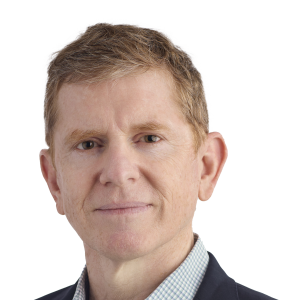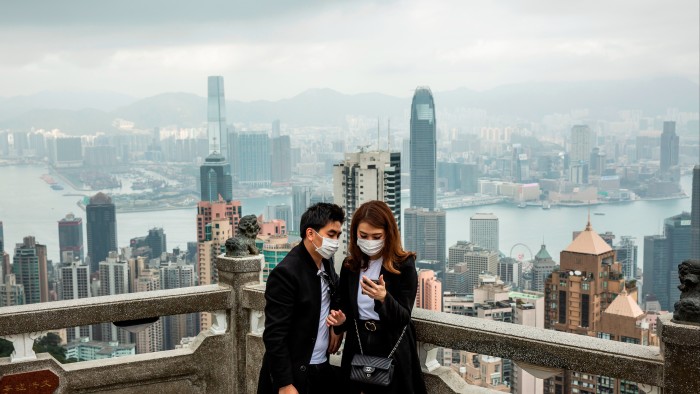Covid forces Hong Kong elite to stay home and consider uncertain future


Roula Khalaf, Editor of the FT, selects her favourite stories in this weekly newsletter.
When Hong Kong clamped down on travel this year because of coronavirus, one group was given an extraordinary exemption from the territory’s mandatory two-week quarantine for overseas travellers.
Under the rules, directors or executives of Hong Kong-listed companies can travel between the Asian financial hub and mainland China without quarantining in Hong Kong, provided it is for business reasons. The exemption has even been extended to those applying for listings.
The implication that floating shares — or the mere intention to do so — somehow gives you special rights in the crisis may have sparked demonstrations in other cities. But not in Hong Kong — because Hong Kongers, from the most fervid anti-government protester to those working in restaurants and property, know that the city’s wealth owes much to its stock market.
Every time the bourse mints another billionaire thousands benefit, as happened just last month, when the offering of bottled water producer Nongfu Spring made founder Zhong Shanshan China’s richest person.
So, even as the global Covid-19 case toll rises, the travel exemption remains firmly in place, and a comfort for at least some of Hong Kong’s ultra-wealthy.
Known for their spectacular fortunes and jet-setting ways, the city’s rich have, in other ways, had a relatively “tough” pandemic. While their counterparts in New York have been able to retreat to the Hamptons, there are no such bolt-holes in Hong Kong. Shek O, a hamlet on the southeastern corner of tiny Hong Kong island, is about as good as it gets. For almost all of Hong Kong’s wealthy, the only escape from the city’s sauna-like summer heat has been an air conditioner.
In February, many of the city’s elites fled when the outbreak first surfaced in mainland China. But after Europe, the UK and the US failed to contain the disease, they returned to the comparative safety of Hong Kong. In March, Hong Kong’s airport was the centre of the billionaires’ equivalent of a wartime evacuation when a record number of private jets brought scores of Hong Kong and mainland Chinese businesspeople home from the west.
Stuck at home, the heads of the city’s wealthiest families have more time to reflect on succession and other issues, such as sustainable investing, as their millennial children take over management positions.
Hong Kong’s well-heeled have also been better prepared for bad news than those elsewhere. Starting last June, the city’s economy took a hit from anti-government protests. Then came the pandemic and Beijing’s imposition of a tough national security law in June this year to quell the protests, sparking US sanctions.
So sensitive has politics become in the city that even your correspondent was quizzed about his writings on political affairs during a recent routine visit to a bank branch.
These events have driven the city’s tycoons, who have traditionally invested abroad, to diversify even more, private bankers say. Gold dealers report that Hong Kong investors have moved about 10 per cent of their holdings of the precious metal offshore in the past year.
Others have ploughed money into stocks. Clients in Hong Kong were sitting on a lot of cash when the pandemic started, says Roger Bacon, regional investments head of Citi Private Bank Asia-Pacific. Many were therefore well placed to invest in the subsequent equity rally. He adds: “Now, it’s a question of perhaps taking some very large profits in the big tech names off the table.”
Some families are looking at offshore real estate markets, such as the UK, a traditional market for Hong Kong investors made more affordable by a weaker sterling and Brexit, while others are buying art online.
Meanwhile, many are raising cash — for example, by offloading lower-quality real estate in the territory — to ready themselves for the post-pandemic recovery. “A lot of big players are repositioning their investments and asset portfolios to create liquidity to capture new opportunities,” said Jackie Mau, regional head of ultra high net worth, at HSBC’s private banking arm.
But, throughout it all, there has been one asset many wealthy Hong Kongers have not even considered selling — the family luxury yacht. Without opportunities for global travel, they can be seen plying the emerald waters and white-sand beaches of the Sai Kung marine park in Hong Kong’s east, where there is even a popular pleasure boat party spot called Millionaire’s Beach.
With security guards, friends, mistresses and pedigree dogs aboard, they regularly carve up the waters on wake boards or jet skis.
The next acquisition for those who do not already have one, bankers say, is a private jet. With commercial flights looking unattractive due to coronavirus, even the most humble tycoon now has a good excuse to own one.
“We have received more inquiries from clients about buying private jets,” said one wealth manager for the super-rich. “They realise that commercial airlines might not be safe for them.”
Joe Leahy is the FT’s Asia news editor
This article is part of FT Wealth, a section providing in-depth coverage of philanthropy, entrepreneurs, family offices, as well as alternative and impact investment.
Comments